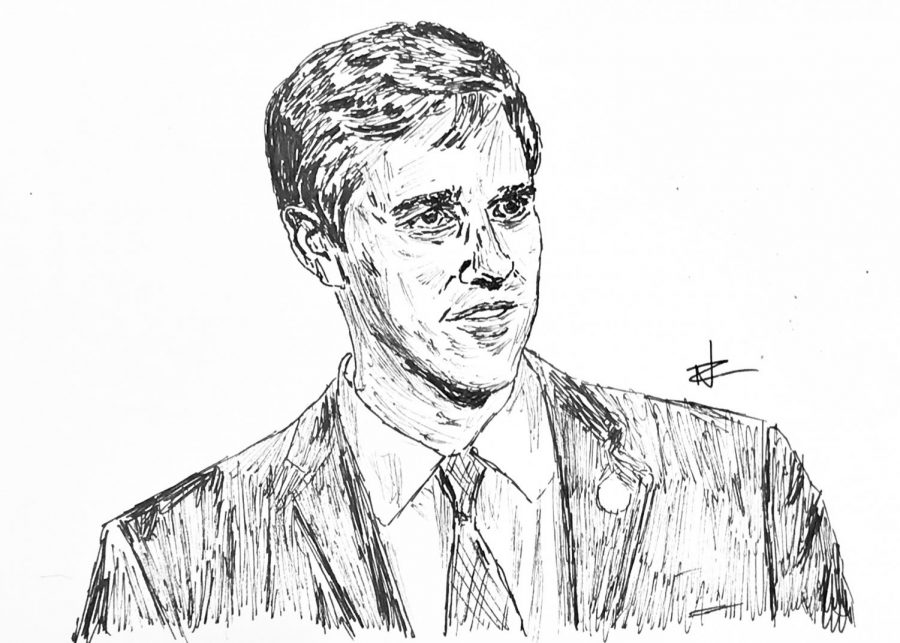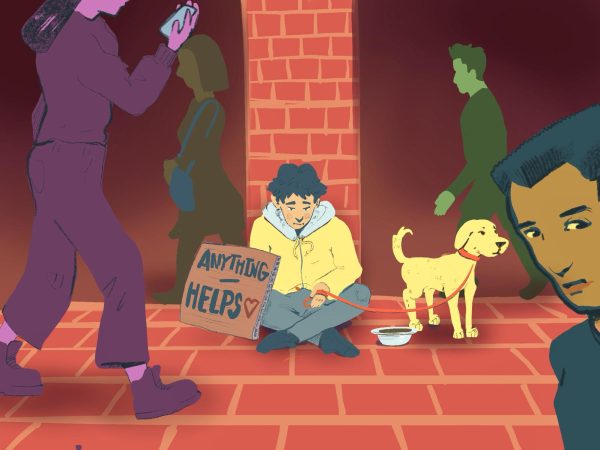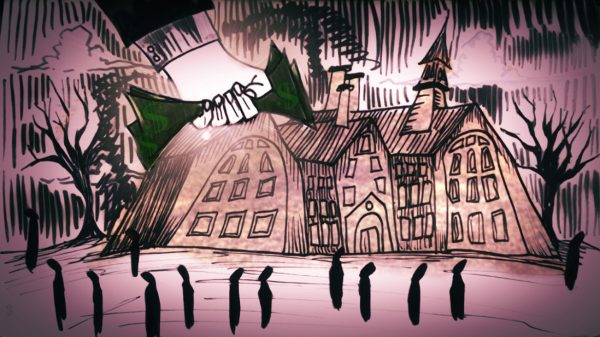Charisma isn’t a presidential qualifier, Beto
March 28, 2019
It’s 2019: climate change, poverty and white nationalists are coming to kill us. Time is running out. Who will save us? For some, it’s Beto O’Rourke.
If you’ve never heard of him, here’s the rundown: he’s a Democrat who, until recently, represented El Paso, Texas, in the U.S. Congress. Now, he’s running for president in 2020.
So, why is Beto so good? Some fans point to charisma, others to accomplishments. But the truth is Beto’s politics are deeply flawed.
Beto officially announced his candidacy March 14, a day after he teased he was “just born to be in it” on the cover of Vanity Fair.
The political junkies have been fawning over him for months, from “Pod Save America” host Dan Pfeiffer to millionaire investment banker Robert Wolf.
In his campaign’s first 24 hours, Beto narrowly beat Sen. Bernie Sanders to become the No. 1 fundraiser in the presidential race with a haul of $6.1 million, according to a March 18 Vox article.
“[Charisma is] his most defining quality. He can command a crowd. He’s a politician living out a rock-star dream,” Tara Golshan stated in a March 14 Vox article.
It’s okay to think Beto is charming. We’ve all liked political figures for their personalities — it’s only natural.
But we need to acknowledge the fundamental limitations of likability.
Charisma didn’t stop President Barack Obama from using his vicious drone strike program to kill hundreds in Iraq and Syria, many of whom were innocent civilians, according to an October 2015 Intercept report.
It didn’t stop President Ronald Reagan from funding and covering up the slaughter and rape of children in El Salvador, according to a December 2015 article in The Nation.
It doesn’t house homeless veterans, shield sex workers from violence and trafficking or end racial discrimination in hospitals.
Being charismatic, while helpful in electoral politics, doesn’t do or advance anything.
What else, then, is there in the case for President Beto?
One talking point is Beto’s ability to reach across the aisle and get stuff done. But that isn’t what his record shows.
As journalist Zaid Jilani stated in a December 2018 Current Affairs article, Beto was “missing in action” and “rarely challenged concentrated power in D.C.”
Over the course of his three terms in Congress, Beto passed only three bills of his own.
Two were related to veterans affairs and one renamed a firehouse, according to Congress legislation tracker GovTrack.
Even if he could actually enact change in our country, what would Beto’s America look like?
When progressive Democrats Pramila Jayapal and John Conyers introduced Medicare-for-All and College-for-All bills in 2017, Beto didn’t sign onto either.
So, would we have universal college or single-payer health care under a Beto presidency?
What about universal childcare? Reparations for slavery? A Green New Deal?
The truth is, nobody understands Beto’s vision for America.
Some things, such as opposition to President Donald Trump and his vile agenda, are easy pickings for Democrats.
But our greatest challenges — impending ecological catastrophe, rising inequality and poverty, mass incarceration, this list goes on — are left unanswered.
We are at a crucial juncture in American political and social life.
The wellbeing of women, people of color, indigenous people, working people, young people, all people everywhere and our planet, is all at risk.
At the same time, we have a short-lived opportunity to set a course for equity and sustainability.
We can’t afford the politics of Beto.
We must instead fight for politics of radical change and solidarity.
















![Can’t buy me [self] love](https://vtcynic.com/wp-content/uploads/2024/04/self-care-FINAL-600x398.jpg)
